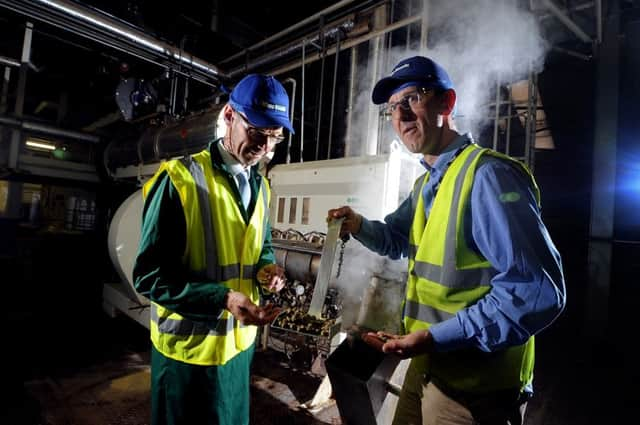Pet foods business ready for take off at ex-airfield


Wagg Foods has started digging to build a new 100,000 sq ft, state-of-the-art distribution centre and offices near to its current headquarters, just outside Thirsk.
The company has established Britain’s largest dry dog food manufacturing base on the site of the former Dalton Airfield which was used by Bomber Command during the Second World War.
Advertisement
Hide AdAdvertisement
Hide AdWagg says its new building will allow it to stay ahead of the game, ensuring consistent supply to all its customers and to satisfy the growing demand for its ranges of pet food which has seen it become the UK’s number one dry dog food brand. Harringtons, which Wagg launched in an attempt to make premium dog foods affordable to the general consumer, is the fastest growing dry pet food brand.
Bill Page, founder of Wagg, said: “This is an exciting time for Wagg, we’re pleased to be able to continue to invest locally and expand our capabilities due to ongoing sales growth across the Wagg and Harringtons brands, both in the UK and globally.”
Operations director George Page aded: “Space is now at a premium at our two Yorkshire factories, having recently added more new packing lines but this distribution centre will erase that pressure and it allows us to continue delivering the great value food pet owners enjoy as well as provide the platform for the next phase of our growth plans.”
The new facility will be up and running for summer 2016.
Wagg Foods is an independent family-owned company which makes its food in its own factory, investing in technology ‘to produce the highest quality pet foods, using the finest ingredients at the best possible price’.
Advertisement
Hide AdAdvertisement
Hide AdThe company’s history began back in 1923 when the current managing director Richard Page’s grandfather set up an animal feed mill in Tadcaster.
The company was known as Page Feeds and supplied the farming community through four feed mills that were strategically placed around Yorkshire.
It started to manufacture pet food in the 1980s and by 1990 had stopped producing animal feeds for farming, had changed its name to Wagg and moved to its current purpose-built site at Topcliffe, near Thirsk.
During the 1990s it expanded the complete dry dog food range, moved into small animal food and doubled its capacity by expanding the original factory site.
Advertisement
Hide AdAdvertisement
Hide AdIn 2002 it opened its dog food extrusion factory and kitted it out with the latest production equipment, capable of producing in excess of 40,000 tonnes of extruded product per year.
In 2007 it doubled its pet food capacity, with a second extruder, and increased its total blending capacity.
Then in 2011 it added a third extruder, more robots and more packing lines, and in 2012 it launched Wagg Cat.
Today its pet food products are stocked through a broad range of retailers in the UK, from supermarket chains to small independent pet shops, and can be found in more than 16 countries around the world.
Advertisement
Hide AdAdvertisement
Hide AdThe company says it does everything it can to conserve energy and support the green agenda. It uses state of the art machinery that is more efficient and helps reduce absolute energy requirements, and changed to natural gas usage, investing in a Combined Heat and Power (CHP) plant to generate its own electricity.
It also tries to source its core meat meal and wheat products locally and is always looking for new ways to reduce and recycle waste from its UK manufacturing process.
It also works with its key customers to minimise its carbon footprint by trying to reduce transport miles.